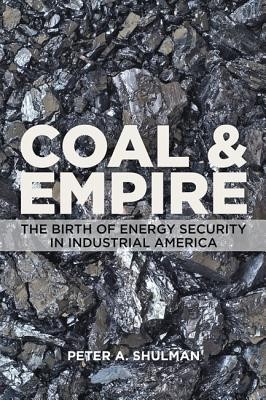
- Išsiųsime per 10–14 d.d.
- Autorius: Peter A Shulman
- Leidėjas: Johns Hopkins University Press
- ISBN-10: 1421436361
- ISBN-13: 9781421436364
- Formatas: 15.2 x 22.9 x 1.9 cm, minkšti viršeliai
- Kalba: Anglų
- Extra -15 % nuolaida šiai knygai su kodu: ENG15
Atsiliepimai
Aprašymas
The fascinating history of how coal-based energy became entangled with American security.
Since the early twentieth century, Americans have associated oil with national security. From World War I to American involvement in the Middle East, this connection has seemed a self-evident truth. But, as Peter A. Shulman argues, Americans had to learn to think about the geopolitics of energy in terms of security, and they did so beginning in the nineteenth century: the age of coal. Coal and Empire insightfully weaves together pivotal moments in the history of science and technology by linking coal and steam to the realms of foreign relations, navy logistics, and American politics. Long before oil, coal allowed Americans to rethink the place of the United States in the world.
Shulman explores how the development of coal-fired oceangoing steam power in the 1840s created new questions, opportunities, and problems for U.S. foreign relations and naval strategy. The search for coal, for example, helped take Commodore Matthew Perry to Japan in the 1850s. It facilitated Abraham Lincoln's pursuit of black colonization in 1860s Panama. After the Civil War, it led Americans to debate whether a need for coaling stations required the construction of a global empire. Until 1898, however, Americans preferred to answer the questions posed by coal with new technologies rather than new territories. Afterward, the establishment of America's string of island outposts created an entirely different demand for coal to secure the country's new colonial borders, a process that paved the way for how Americans incorporated oil into their strategic thought.
By exploring how the security dimensions of energy were not intrinsically linked to a particular source of power but rather to political choices about America's role in the world, Shulman ultimately suggests that contemporary global struggles over energy will never disappear, even if oil is someday displaced by alternative sources of power.
EXTRA 15 % nuolaida
Kupono kodas: ENG15
Akcija baigiasi už 5d.18:11:29
Nuolaidos kodas galioja perkant nuo 10 €. Nuolaidos nesumuojamos.

- Autorius: Peter A Shulman
- Leidėjas: Johns Hopkins University Press
- ISBN-10: 1421436361
- ISBN-13: 9781421436364
- Formatas: 15.2 x 22.9 x 1.9 cm, minkšti viršeliai
- Kalba: Anglų
The fascinating history of how coal-based energy became entangled with American security.
Since the early twentieth century, Americans have associated oil with national security. From World War I to American involvement in the Middle East, this connection has seemed a self-evident truth. But, as Peter A. Shulman argues, Americans had to learn to think about the geopolitics of energy in terms of security, and they did so beginning in the nineteenth century: the age of coal. Coal and Empire insightfully weaves together pivotal moments in the history of science and technology by linking coal and steam to the realms of foreign relations, navy logistics, and American politics. Long before oil, coal allowed Americans to rethink the place of the United States in the world.
Shulman explores how the development of coal-fired oceangoing steam power in the 1840s created new questions, opportunities, and problems for U.S. foreign relations and naval strategy. The search for coal, for example, helped take Commodore Matthew Perry to Japan in the 1850s. It facilitated Abraham Lincoln's pursuit of black colonization in 1860s Panama. After the Civil War, it led Americans to debate whether a need for coaling stations required the construction of a global empire. Until 1898, however, Americans preferred to answer the questions posed by coal with new technologies rather than new territories. Afterward, the establishment of America's string of island outposts created an entirely different demand for coal to secure the country's new colonial borders, a process that paved the way for how Americans incorporated oil into their strategic thought.
By exploring how the security dimensions of energy were not intrinsically linked to a particular source of power but rather to political choices about America's role in the world, Shulman ultimately suggests that contemporary global struggles over energy will never disappear, even if oil is someday displaced by alternative sources of power.




Atsiliepimai